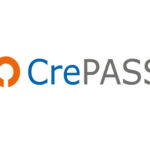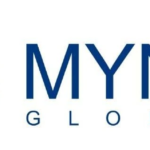The insights derived from healthcare marketing statistics provide a roadmap for healthcare professionals and marketers, offering a glimpse into patient behaviors, preferences, and the impact of digital trends.
They empower healthcare organizations to tailor their strategies, whether it’s optimizing for mobile platforms, managing online reputations, leveraging video content, harnessing the power of social media, or embracing telehealth.
By recognizing the importance of healthcare marketing statistics, professionals can not only meet the expectations of the modern healthcare consumer but also foster a proactive and adaptive approach to stay ahead in this dynamic and vital field.
Role of Healthcare Marketing Agencies
Healthcare marketing service providers play a pivotal role in promoting healthcare brands, helping them navigate the complexities of the industry, and ensuring they stand out in an increasingly competitive market.
- Strategic Brand Positioning: Healthcare marketing agencies specialize in developing strategic brand positioning for healthcare entities. They conduct market research, analyze competition, and identify unique selling propositions to craft a brand identity that resonates with the target audience. This strategic positioning forms the foundation for all marketing efforts.
- Digital Presence Enhancement: In an era dominated by digital interactions, a robust online presence is non-negotiable. Healthcare marketing agencies leverage their expertise to optimize websites, create compelling content, and implement effective healthcare search engine optimization (SEO) strategies. They also manage social media profiles, ensuring consistent and engaging communication with the audience.
- Patient-Centric Content Creation: Creating content that educates, informs, and engages patients is a key focus of healthcare marketing agencies. They develop patient-centric content, including blog posts, articles, videos, and infographics, addressing health concerns, sharing success stories, and disseminating valuable information to establish the healthcare brand as a trusted source.
- Reputation Management: Maintaining a positive reputation is vital in healthcare. Marketing agencies actively monitor online reviews, manage feedback, and address concerns promptly. By strategically showcasing positive patient experiences and proactively managing any negative feedback, they contribute to building and maintaining a favorable reputation for the healthcare brand.
- Multi-Channel Campaigns: Healthcare marketing agencies design and execute multi-channel marketing campaigns that encompass various platforms such as social media, email, traditional media, and more. These campaigns are tailored to reach specific target demographics, promoting healthcare services, specializations, and events to maximize visibility and engagement.
Top Health & Wellness Marketing Statistics
Here are the top healthcare marketing stats you should know about:
1. Mobile Health (mHealth) Usage is Soaring
With the ubiquity of smartphones, mHealth is becoming integral to healthcare engagement.
Over 80% of patients use mobile devices to search for health information, schedule appointments, and access medical records.
Healthcare marketers need to optimize their strategies for mobile platforms to reach and engage a tech-savvy audience actively seeking information on-the-go.
2. Online Reviews Influence Patient Decisions
Patient reviews wield significant influence, with approximately 77% of patients relying on online reviews when choosing a healthcare provider.
Positive reviews build trust, while negative ones can deter potential patients.
Healthcare providers must actively manage their online reputation and encourage satisfied patients to share their experiences online.
3. Video Content is King for Healthcare Information
Video content has emerged as a powerful tool for healthcare information dissemination.
Around 72% of internet users search for health information through videos.
Healthcare marketers should prioritize creating informative and engaging video content to effectively communicate complex medical information and connect with a diverse audience.
The usage of the best marketing tools has a pivotal role to play here. Marketers should use the best-rated tools for growth hacking to see faster results.
4. Social Media’s Role in Healthcare Decision-Making
Social media platforms play a pivotal role in healthcare decision-making, with 41% of patients choosing a healthcare provider based on their social media presence.
Healthcare organizations should leverage platforms like Facebook, Instagram, and Twitter to share educational content, patient stories, and updates to enhance their visibility and credibility. They should also subscribe to the best marketing newsletters to stay ahead of the latest healthcare marketing trends.
5. Telehealth Adoption Is Accelerating
The global shift toward telehealth has accelerated, with telehealth visits increasing by over 50% in recent years.
As patients increasingly embrace virtual care options, healthcare marketers should emphasize the convenience and accessibility of telehealth services in their marketing strategies to meet the evolving expectations of the modern healthcare consumer.
Conclusion
These healthcare marketing statistics underscore the importance of adapting to the digital landscape, prioritizing patient experience, and embracing innovative technologies. By staying abreast of these trends, healthcare marketers can make informed decisions to effectively engage and connect with their target audience.





